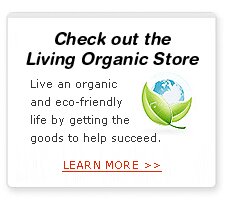Living Organic Online Store
Rodale's Ultimate Encyclopedia of Organic Gardening: The Indispensable Green Resource for Every Gardener
Rodale's Ultimate Encyclopedia of Organic Gardening has been the go-to resource for gardeners for more than 50 years—and the best tool novices can buy to start applying organic methods to their fruit and vegetable crops, herbs, trees and shrubs, perennials, annuals, and lawns. This thoroughly revised and updated version highlights new organic pest controls, new fertilizer products, improved gardening techniques, the latest organic soil practices, and new trends in garden design. In this indispensable work readers will find: - comprehensive coverage for the entire garden and landscape along with related entries such as Community Gardening, Edible Landscaping, Horticultural Therapy, Stonescaping, and more - the most in-depth information from the trusted Rodale Organic Gardening brand - a completely new section on earth-friendly techniques for gardening in a changing climate, covering wise water management, creating backyard habitats, managing invasive plants and insects, reducing energy use and recycling, and understanding biotechnology - entries all written by American gardeners for American gardeners, with answers for all the challenges presented by various conditions, from the humid Deep South and the mild maritime coasts to the cold far North and the dry Southwest Rodale's Ultimate Encyclopedia of Organic Gardening has everything anyone needs to create gorgeous, non-toxic gardens in any part of the country.
Related Products
The Backyard Idea Book: Easy Organic Techniques and Solutions for a Landscape You'll Love
To help organic gardening novices face the daunting task of landscaping an entire backyard, professional arborist and city landscaper Kris Medic offers practical, simple advice on designing and maintaining a yard with minimal fuss. Medic, who has worked at such prestigious gardens as Callaway Gardens, Longwood Gardens and the Morris Arboretum, suggests time-saving alternatives to typical high-maintenance green lawns, including wildflower meadows or wildlife areas and the addition of decks and patios, which also increase living space. With 175 color photographs, 80 illustrations, 15 garden designs, and recommendations for all regions of the country, this book will inspire homeowners to envision their own dream landscape. Hundreds of expert tips and strategies, including "When to Call a Pro" boxes and a run-down of more than 60 easy-care landscape plants, provide them with the know-how to turn those dreams into reality.
The Organic Home Garden
In The Organic Home Garden, Patrick and John, take readers step-by-step through the engaging process of growing the best possible food - from spring's fi rst spinach, asparagus and salad greens, through the summer abundance of tomatoes, cucumbers, melons and all, right into fall's harvest of squash, leeks, carrots and potatoes. Often, a small timely tip makes all the difference, and this dynamic team leaves nothing out. Whether you tend a small city yard, a full-size country garden or something in between, their instructive, easy to follow and often humorous advice will ensure you make the very best use of the space you have -- and you can't get any more local, seasonal and organic than food from your own yard. Combine this with John's unique and vibrant artistic paintings, and you have a book that stands out from the wall of glossy, manufactured gardening publications, making The Organic Home Garden a stand-alone, stand-out book sure to intrigue and capture gardeners, artists and customers who conduct their lives to a different rhythm.
Teaming with Microbes: The Organic Gardener's Guide to the Soil Food Web, Revised Edition
The 2011 Garden Writers of America Gold Award for Best Writing/Book proves soil is anything but an inert substance. Healthy soil is teeming with life -- not just earthworms and insects, but a staggering multitude of bacteria, fungi, and other microorganisms. When we use chemical fertilizers, we injure the microbial life that sustains healthy plants, and thus become increasingly dependent on an arsenal of artificial substances, many of them toxic to humans as well as other forms of life. But there is an alternative to this vicious circle: to garden in a way that strengthens, rather than destroys, the soil food web -- the complex world of soil-dwelling organisms whose interactions create a nurturing environment for plants. By eschewing jargon and overly technical language, the authors make the benefits of cultivating the soil food web available to a wide audience, from devotees of organic gardening techniques to weekend gardeners who simply want to grow healthy, vigorous plants without resorting to chemicals.




